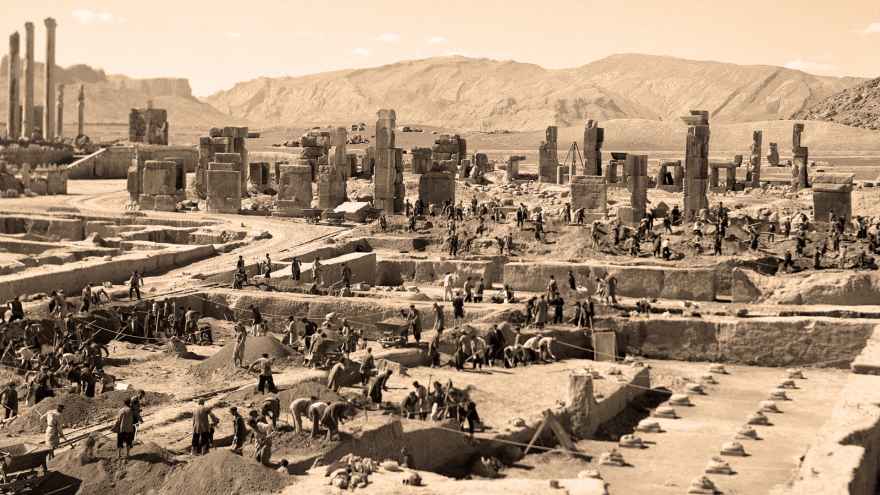Ancient Civilizations

The following was published in UChicago News and the Ancient Civilizations video was posted online on Nov. 11, 2022.
A century ago, UChicago scholars argued a controversial idea: Western civilization had its roots in the ancient Middle East—not in Greece or Rome. Today, scholars at the OI and across the University continue shaping the study of the early civilization through archaeological work and their research on the world’s most ancient languages.
In 1919, UChicago Egyptologist James Henry Breasted formed the Oriental Institute (OI)—a world-renowned museum and interdisciplinary research center dedicated to the study of early civilizations in Western Asia and North Africa.
OI archaeologists carried out large-scale expeditions in modern-day Iraq, Turkey, Egypt, Iran and Israel, unearthing massive temple complexes as well as objects of everyday life. For over 100 years, these items have helped researchers sketch a portrait of life in the some of the world’s oldest cities.
The careful documentation of hundreds of thousands of inscriptions helped scholars to unravel the mysteries of cuneiform—the world’s oldest writing system. First developed in Sumer, an ancient Mesopotamian city, cuneiform was eventually adopted by others, like the Akkadians and Babylonians for their own languages.
UChicago scholars have worked to decipher languages that haven’t been spoken for thousands of years. The Chicago Assyrian Dictionary, finalized after nine decades, was the key to unlocking ancient legal codes, literature and economic transactions. Other UChicago dictionary projects are examining the Hittite and Demotic languages.
Today, UChicago scholars partner with local experts to document and preserve ancient sites and culture. Data collected in the field supports research in the Departments of Near Eastern Languages and Civilizations, Classics, Anthropology, History, Art History and the Divinity School—scholarship which bridges the ancient past to our lives today.
Learn more about the history of the Chicago Assyrian Dictionary from Martha T. Roth, the Chauncey S. Boucher Distinguished Service Professor in the Department of Near Eastern Languages and Civilizations and the Editor-in-Charge of the Chicago Assyrian Dictionary.